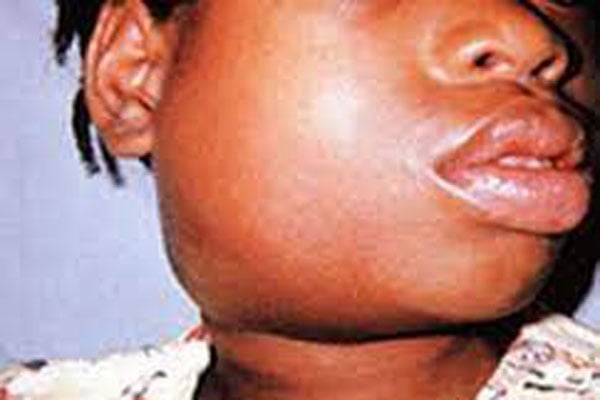Prime
What are the symptoms of mumps?

Mumps is characterised by painful enlargement of the salivary glands. PHOTO/COURTESY
What you need to know:
- Much as the infection is seen mostly in children where the symptoms are less severe, in a few cases, it may occur in adults where the symptoms, including pain below the ear, fever, headache, abdominal and testicular pain are usually more serious.
I am 34 years old with pain below my left ear. Can adults like me suffer from mumps? James
Dear James,
Mumps is a contagious disease caused by an infection from the paramyxovirus virus and although it may affect other areas of the body, it mostly causes a painful swelling of one or both sides of the parotid salivary glands (below the ear).
Much as the infection is seen mostly in children where the symptoms are less severe, in a few cases, it may occur in adults where the symptoms, including pain below the ear, fever, headache, abdominal and testicular pain are usually more serious.
A person who has mumps can spread the disease by coughing, sneezing, or talking, with the resulting airborne droplets leading to infection. The infection can also be spread by sharing contaminated items such as used cups and utensils.
Prevention of infection, therefore, may target the spread by getting fully immunised against the germ. It can also include avoiding crowded places, washing or sanitising hands, not sharing cups or other utensils as well as improving general hygiene at home and work, among other measures.
Although there is currently no cure for mumps, many may recover within two weeks without any complications, even without any treatment.
However, although sometimes the symptoms are mild, mumps can lead to serious complications including infection of the brain (encephalitis) or its coverings, (meningitis), inflammation of the testicles or ovaries risking infertility, inflammation of the pancreas (pancreatitis) risking diabetes, and affecting the ears, risking deafness, among other complications.
This, therefore, means that for anybody suspected to have mumps, however mild, a doctor should be consulted to rule out other causes of mumps such as illnesses and complications are prevented or treated.
In many rural settings, victims have used blue dyes (bururu), charcoal or have pierced the affected parotid glands with kitchen knives leading to no relief but instead more suffering. These practices, therefore, should be avoided and discouraged.
To relieve the symptoms, one should get enough rest, take plenty of fluids and use painkillers such as panadol (not aspirin since it may cause a more serious Reyes syndrome in children).




